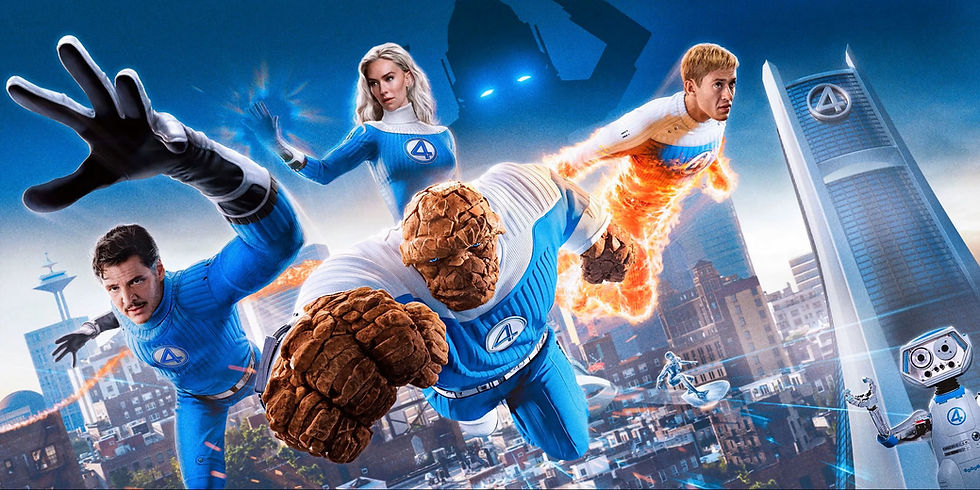Road to Justice
- Jun 24, 2022
- 4 min read
Director Brian De Palma's The Untouchables (1987) is more relevant than ever over thirty-five years after its original theatrical release in 1987. From its timely themes of justice prevailing amid insurmountable obstacles and corruption to the eventual triumph of taking down a seemingly untouchable figure like Al Capone (played by Robert De Niro), there is much to enjoy from this movie.
The Untouchables is set in Prohibition-era Chicago in the 1930s, where Al Capone rules the city with a near-iron grip. Via illegal smuggling of alcohol and plenty of allies and enablers on his side, Capone is seemingly out of reach for justice, or so he thinks. Enter Bureau of Prohibition agent Elliot Ness (played by Kevin Costner), who, along with his small but fiercely loyal team members called "The Untouchables", made up of veteran Irish-American officer Jim Malone (played by the late Sean Connery in his Academy Award-winning role), accountant Oscar Wallace (played by Charles Martin Smith), and police academy trainee George Stone (played by Andy García), seek to bring Capone to justice.
Performance-wise, Costner delivers as an amicable lead with plenty of his everyman charm and idealistic morals who is repeatedly pushed to the limits by Capone and those under his influence. Connery's iconic turn as Jim Malone provides the film's wisdom and wit with lines like, "You just fulfilled the first rule of law enforcement: make sure when your shift is over you go home alive. Here endeth the lesson." García's sharpshooter character of George Stone is also a highlight, for underneath his tough-guy persona lies a fiercely loyal ally who maintains his integrity throughout the highs and lows of the case. Smith as Oscar Wallace, is the brains behind the plan to charge Capone with tax evasion, and the scenes where he goes out charging into the line of fire are genuinely entertaining.
Moving on to the villains, De Niro as Capone is good but considering the original pick was the late Bob Hoskins, I would have liked to have seen the latter's interpretation of Capone given his performance in The Long Good Friday (1980). Nevertheless, De Niro does a wholehearted job as the notorious gangster with his arrogant smirk and obnoxious demeanor. The late Billy Drago's performance as Capone's enforcer, Frank Nitti, a slimy and genuinely merciless creature who kills off several key characters with no remorse, comes close to outshining Capone in terms of menace as a villain.
De Palma's directing style is slick and stylish yet consistently remains emotionally invested in the movie's protagonists and their quest for justice, with bloody violence coming in shocking spurts, which are well-executed (so to speak). The exterior settings, especially those near the Canadian border, are incredibly well-captured on film. At times, they resemble those seen in 1930s adventure serials akin to the ones that inspired the Indiana Jones movies, which I find to be a timeless quality. The famous stairway sequence in Chicago Union Station is excellent, with De Palma's intelligent use of slow-motion, drowned-out dialogue, and emphasis on sound effects. The tense buildup to said sequence is exquisite, for there is high uncertainty about where Capone's bookkeeper is and whether any of the people work for Capone. Also, using the baby carriage bumping down the Union Station stairs like during the "Odessa Steps" montage in the 1925 silent film Battleship Potemkin adds another level of timelessness to this film.
If I have any criticisms of this film, it is that this is a somewhat idealistic interpretation of events, for most of this movie is fictionalized. For instance, the famed stairway sequence never happened, nor did the raid at the Canadian border. Also, the film's most glaring example of historical inaccuracies is that Ness' team had little to do with Capone's final tax evasion conviction. Although regardless of the fictionalizations, this movie remains a riveting watch that gets better with age.
Ennio Morricone's musical score is instantly memorable right from the opening titles. From there, a great mix of traditional orchestral sound with the 1980s, as exemplified by the use of electronic synthesizers. While the combination of old and new sounds may turn some off, it does make for a unique listening experience as part of that identity comes from De Palma's directing style that gives a 1930s story a shot of contemporary energy. That said, the use of period jazz music from Duke Ellington is an appropriate choice to balance the modern elements.
In conclusion, The Untouchables is a delightful and uplifting story about the road to justice, its various hurdles, and the satisfaction of its eventual payoff. Despite the numerous creative liberties taken with historical facts, this film remains a modern classic. When these challenging times get me down and leave me feeling hopeless or powerless, I constantly refer to Malone's famous quote to Ness: "What are you prepared to do?" Such a quote continues to not only motivate me to remain persistent in seeking positive changes in the world around me but also ensure that I do everything I can to create a better place for others to live in.
Final Score: 9 out of 10





Comments